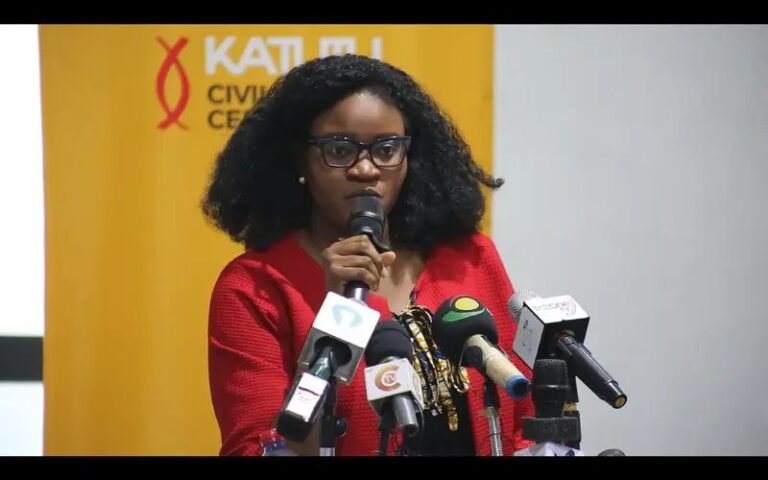Farida Bemba Nabourema, Founder and Executive Director of the Katutu Civil Rights Center, has called on the Government of Ghana to break its silence on the escalating repression in neighboring Togo under President Faure Gnassingbé.
She is urging Ghana to show leadership by taking a firm stance against the violence and anti-democratic practices unfolding in Togo, and to use its influence within the Economic Community of West African States (ECOWAS) to demand accountability and reform.
Her call comes in the wake of recent developments in Togo, where President Faure Gnassingbé who has ruled for 20 years, has been sworn in as President of the Council of Ministers, a newly created executive role with no official term limits. This follows a controversial constitutional reform that abolished presidential elections in favor of a parliamentary system. The opposition has strongly condemned the move, describing it as a calculated attempt to allow Gnassingbé to remain in power indefinitely.
She capitalized on the geographic and cultural proximity between the two neighbouring countries, highlighting the potential spillover effects of the situation in Togo on Ghana. Her remarks underscored a deep commitment to ensuring that the will of the people is not undermined by authoritarian governance.
“We share everything, culture, history, traditions. We are technically the same people separated by colonial borders. What happens in Togo has a direct impact on Ghana,” she stated
Nabourema’s plea comes amid rising political unrest in Togo, where recent amendments to the 1992 constitution have eliminated presidential term limits, paving the way for President Gnassingbé to extend his over 20-year rule.
Between June 26 and 28, 2025, protests led by Togolese youth against these amendments were violently suppressed. Seven people were killed, many were injured, and hundreds were arrested as security forces cracked down on demonstrators.
She warned that the deteriorating situation could have significant spillover effects on Ghana, particularly in the form of refugee movements and regional instability. “Ghana cannot afford to ignore what is happening next door,” she said.
Nabourema strongly condemned the Faure Gnassingbé regime for employing brutal tactics to silence dissent, including internet shutdowns, the detention of activists, and attempts to extradite opposition leaders.
She described these as clear signs of authoritarianism taking root under the guise of constitutional reform.
She also criticized ECOWAS for what she termed “selective interventions”, failing to speak up when democratically elected governments violate the rights of citizens, while being vocal only in the case of military coups.
“ECOWAS must stop being selective. Democracy is not just about preventing coups; it’s also about protecting citizens from state violence. Ghana, as one of the strongest democracies in West Africa, has a responsibility to lead this call,” she said.
In reinforcing her appeal to the Ghanaian government, she referenced past incidents in which the Togolese military crossed into Ghanaian territory, a move that constituted a breach of international law, a phenomenon she fears could recur if the current unrest escalates.
The political tensions in Togo have triggered pockets of protest across the country, peaking on June 6 with major demonstrations in Lomé, Sokodé, Kara, and Atakpamé, where protestors echoed a resounding message: “No to constitutional coup” and “Faure Must Go.”
Since Faure Gnassingbé assumed power in 2005 following his father’s death, Togo has experienced recurring political unrest, contested elections, and demands for democratic reforms. Despite early efforts at reconciliation and some electoral milestones, his long-term rule has been marked by growing opposition resistance, including boycotts and protests against term extensions and alleged electoral manipulation.
Major demonstrations in 2017 and 2018, driven by calls for presidential term limits and political accountability, led to mediation efforts by regional leaders, but yielded limited results. In 2020, Gnassingbé was re-elected amid allegations of fraud. The government later reinstated term limits without retroactive effect. In 2022, Togo joined the Commonwealth, amid ongoing criticism of its democratic credentials.


